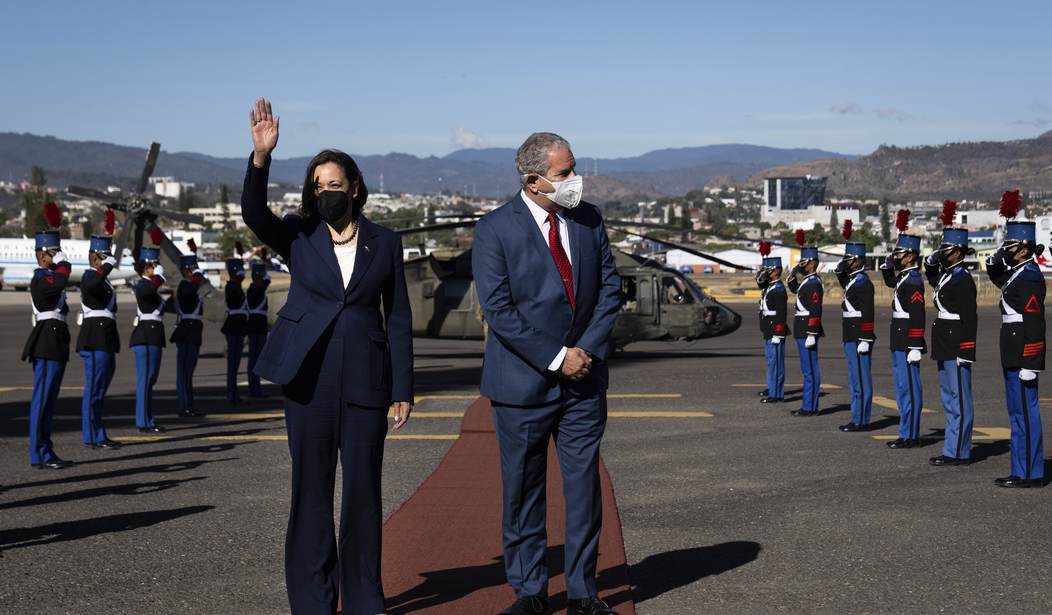Emboldened by a trend of far-left politicians taking power throughout the region, China and Russia are stepping up efforts to establish an economic beachhead in Central and South America. If allowed to stand, this would prove far more perilous to American citizens than the far-away war of aggression in Ukraine. The empire-building of these two superpowers needs to be stopped.
The two increasingly brazen and hostile nations have been quietly sliding into the American hemisphere to choke off U.S. influence to our south, crowding out space for free market principles, not to mention freedom in general. An obvious example: with the established extreme-left fortresses of Cuba and Venezuela generally shored up, vigorous attempts are underway to add Colombia and Brazil into the mix by orchestrating massive support for anti-American candidates from the top down. They have already succeeded in Colombia, Chile, and Nicaragua and are now doubling down on the big prize, Brazil.
The Wall Street Journal reported last month that Vladimir Putin, building a North-South economic and security network, has a key ally in “China, which has been working along this same North-South axis for years, showering trade and investment on Asia, Latin America and Africa, often in nations long seen as diplomatic backwaters.” It makes all the sense in the world for them to unify against the United States to destabilize our backyard, and we need to pay attention.
It would be helpful if our president and his State Department would stop quietly enabling this problem by propping up the candidacy of an avowed Marxist in Brazil behind the scenes.
Some of the prime targets for the empire-building alliance are developing countries in Central and South America that are attracted by the idea of investment, yet not prepared for the strings that are attached. They “aren’t big economic or diplomatic players, but many of them are rapidly growing markets positioned on strategic trade routes, and a number possess the critical minerals needed in the transformation to clean-energy technologies,” according to the Journal.
Recommended: Uvalde, China, and the American Spirit
China has a very ChiCom-sounding “Belt and Road Initiative” that has them investing heavily in South America. The Wall Street Journal (again — because they are paying attention, apparently) cited that Chinese trade with Latin America totals about $450 billion annually and is growing every year at a pace to possibly reach $700 billion by 2035. That investment comes with strings, of course, because the Chinese demand that Chinese labor is used. Anyone who thinks that this is not a developing political and economic threat to the United States is either not paying attention or smoking something.
Investment from both Russia and China comes with heavy-handed foreign state control, whereas Western-style free-market-promoting investment comes with no such strings. In Honduras, there is an example of how to stop Russia and China on the small island of Roatán, in a charter city called Próspera. Próspera is one of three Honduran Zone(s) for Economic Development and Employment (ZEDE) established with a friendly governance structure that promotes economic development, local job creation, and native entrepreneurial innovation, along with a respect for property rights.
This one free-market ZEDE triumph in Honduras has pulled in over $80 million in investment, creating thousands of local jobs and a future with even more employment and development. Of course, this has positive consequences as well in that it reduces the economic incentive for Hondurans to migrate to the United States since they have a little Western-style free-market economy in their own country. While people dream of coming to the United States for a better economic life, investors are bringing that life to the people of Honduras.
One emerging problem is that elements of the left-wing government in Honduras are threatening to wipe out the ZEDEs, using radical rhetoric that would make Che Guevera proud. The fear is that this government aims to seize American assets invested in Honduras despite a 50-year legal stability guarantee protected by the Honduran Constitution and the Dominican Republic-Central America FTA (CAFTA-DR).
Members of the U.S. House and Senate can do something about this situation. The Hickenlooper Amendment, which was made law in 1962, had the effect of cutting off foreign aid to any country that expropriates U.S. property. This language was targeted at Castro’s Cuba, which had taken over a number of refineries and sugar plantations. Now might be the time to dust off that law and update it for current circumstances by cutting off aid to Honduras and visas to Honduran officials, unless they respect their own constitution and leave the ZEDEs to continue to create jobs and economic growth for the Honduran people. And in the process, lawmakers could take a good step in the right direction in checking the China-Russia economic incursion to our south.
There is a battle underway for the future economic and national security of the United States, and we are barely on the field. The proxy war being fought in Honduras, which is one of many in the Western hemisphere, will determine the future of private property rights, free markets, good governance, and American influence in our hemisphere for years to come.










Join the conversation as a VIP Member